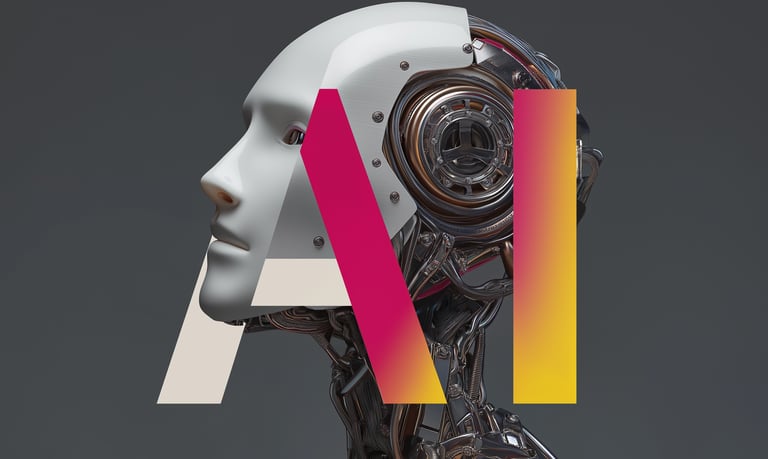The Multifaceted Role of Artificial Intelligence in Modern Society
CULTURE


AI is reshaping the world by automating routine work, enhancing human decision‑making, uncovering hidden patterns, and powering systemic innovations that redefine how we live and work.
Artificial Intelligence (AI) has moved from a futuristic concept to a foundational technology that shapes virtually every sector of modern society. Its role can be understood through four interconnected dimensions: automation, augmentation, insight generation, and societal transformation.
Automation lies at the core of AI’s impact. Machine‑learning models and rule‑based systems can perform repetitive or data‑intensive tasks far faster and more accurately than humans. In manufacturing, robotic arms guided by computer‑vision algorithms assemble products with precision, reducing errors and downtime. In finance, algorithmic trading platforms execute thousands of transactions per second, reacting to market signals that would be impossible for a human trader to monitor. This shift frees human workers from mundane chores, allowing them to focus on higher‑order activities.
Augmentation builds on automation by positioning AI as a collaborative partner rather than a replacement. Natural‑language processing tools such as large language models draft emails, summarize reports, and generate code snippets, acting as intelligent assistants that amplify productivity. In healthcare, diagnostic AI scans medical images, highlighting anomalies for radiologists to review, thereby improving accuracy while preserving the clinician’s expertise. The synergy between human judgment and machine speed creates outcomes that exceed what either could achieve alone.
Insight generation is perhaps AI’s most distinctive contribution. By ingesting massive, heterogeneous datasets, AI uncovers patterns and correlations hidden to conventional analytics. Predictive maintenance systems analyze sensor streams from industrial equipment to forecast failures before they occur, saving costly downtime. Marketing platforms employ recommendation engines that tailor product suggestions to individual preferences, increasing engagement and conversion rates. In scientific research, AI accelerates drug discovery by simulating molecular interactions, shortening the path from hypothesis to clinical trial.
Finally, AI drives broader societal transformation. Smart cities leverage AI to optimize traffic flow, reduce energy consumption, and enhance public safety through real‑time surveillance analytics. Education platforms personalize learning pathways, adapting content to each student’s pace and style. Meanwhile, AI‑powered translation bridges linguistic gaps, fostering global collaboration. These systemic changes reshape how communities interact, work, and solve collective challenges.
However, the expanding role of AI also raises ethical, legal, and economic considerations. Bias in training data can propagate unfair outcomes, while opaque decision‑making processes challenge accountability. Workforce displacement demands reskilling initiatives, and regulatory frameworks must balance innovation with privacy protection. Addressing these issues is essential to ensure AI serves the public good.
In summary, AI’s role encompasses automating routine work, augmenting human capabilities, extracting actionable insights from vast data, and catalyzing societal evolution. Its influence will only deepen as models become more capable and integration points multiply, making responsible stewardship a shared priority for technologists, policymakers, and citizens alike.


